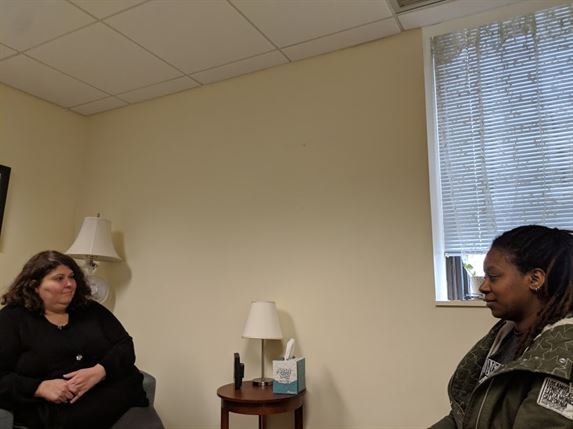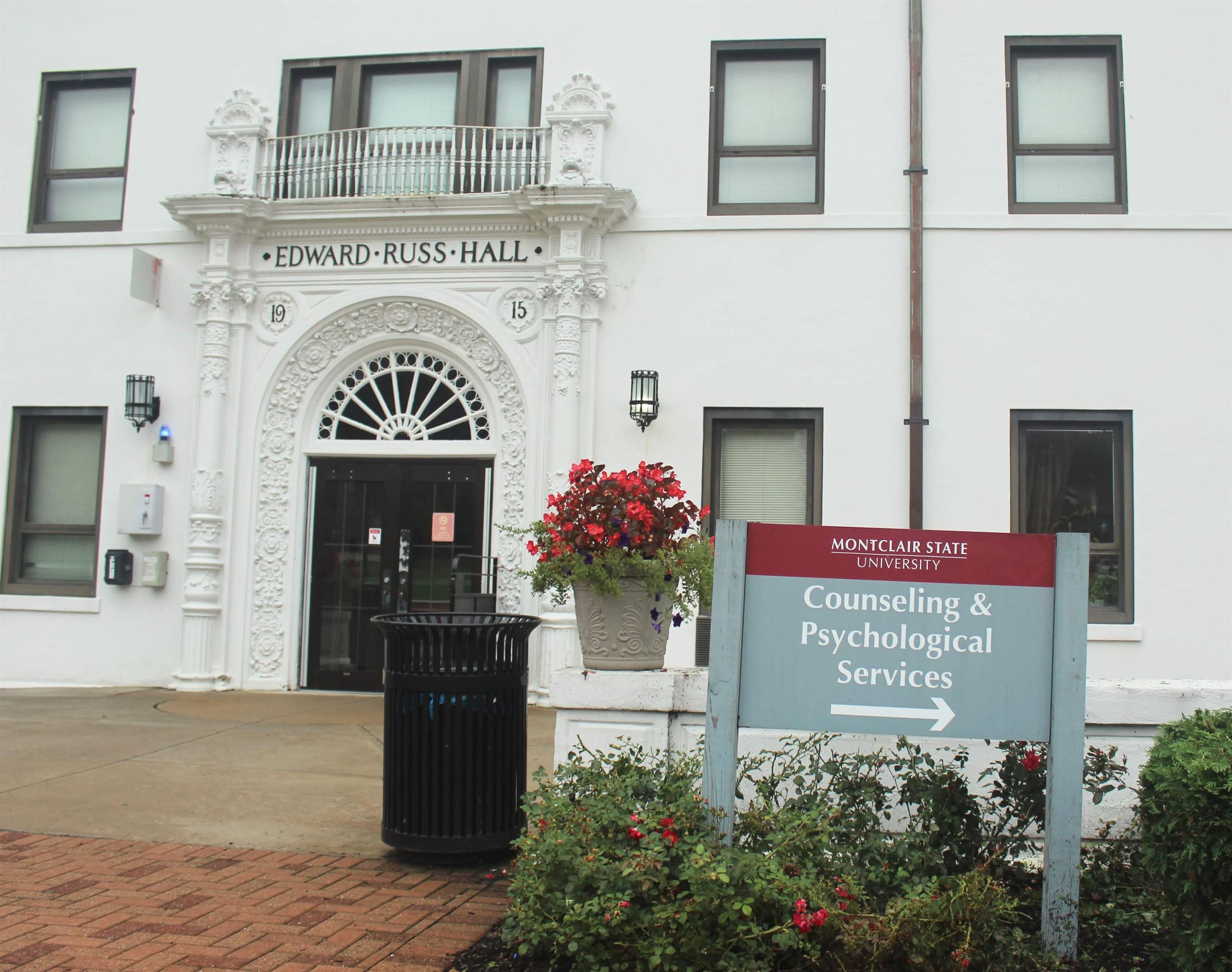Nearly 40 percent of all students at Montclair State University have depression symptoms that interfere with their academic performance. With this epidemic in mind, Counseling and Psychological Services (CAPS) has a mission to help students make the most of their academic experience.
CAPS provides counseling through many different methods. They offer TAO Connect, an online database for virtual counseling, Let’s Talk, 15-minute counseling sessions spread out among campus, group counseling, medication and much more. CAPS promotes mental health wellness and teaches students to develop new coping skills in order to face problems that arise throughout one’s college career.

Students can relax in the CAPS waiting room before being called into sessions. Melaney Moffitt | The Montclarion
CAPS has about 14 staff members to aid 16,988 undergraduates and 4,127 graduate students. Among this staff, only half are accounted as full-time psychologists.
Although there are only a small number of them, some students find them very helpful. Ashley Peralta, a freshman majoring in molecular biology, shared the experience she had after seeking help from CAPS.
“Each psychologist specializes in a specific area, and this is a benefit to many because depending on the severity of your mental health needs, you can find the right psychologist for you,” Peralta said.
Peralta explained why this was helpful for her.
“The psychologist I had been seeing specialized in mindfulness,” Peralta said. “Since I had been struggling with anxiety and intrusive thoughts, I knew it was a perfect match for me in helping me recover.”
CAPS has increased their numbers, adding two postdoctoral fellows that work full time to help the students as well. However, they take away time from other psychologists because one has to be present in the room to supervise unlicensed fellows during their interactions with students. They also have a single part-time psychiatrist on staff to help administer medication for those who need it.

CAPS secretary Michelle Clark Kight works on her computer and helps process new and existing patients. Melaney Moffitt | The Montclarion
Despite these adversities, CAPS has programs like TAO Connect to help students and faculty, free of charge. The only requirement is to sign in using your Montclair State email address.
The program begins with a screening of one’s current mood and development, then CAPS will suggest courses for you to take based off the screening. It establishes a self-pace environment for those with busy schedules. However, CAPS so far is only offering this program until next year due to a lack of funding.
In addition, CAPS has group therapy sessions for undergraduate students and one group therapy meeting for graduate students. They recently added more groups this semester to meet the demand on campus as their numbers grew to about 150 students; however, groups still fill up fast.
If a student participated in group session last semester they can have priority and keep their spot, not allowing new students to join. CAPS tries to limit group numbers so each individual doesn’t feel overlooked and uncomfortable.
Let’s Talk is the most popular program on campus. Last semester alone they had about 500 students come for nine sessions spread out through the week. About half of those students are then referred to counseling and end up going. However, students in individual counseling are usually limited to about six sessions.

Kristine De Jesus (left) speaks with Melaney Moffitt (right) in a CAPS counseling room. Melaney Moffitt | The Montclarion
Anastasiia Agafonova, a graduate student majoring in applied linguistics, explained how this could be an issue.
“I find [CAPS] very helpful, but a short-term therapy is not enough for most students,” Aganofova said. “In eight sessions, you just have time to get used to your therapist and start uncovering your problems, but then you’re just left hanging up in the air.”
As the student population grows each year, it is necessary for the school to keep up with the demands of the students. Students feel that CAPS should be able to accommodate most of the campus community instead of referring patients to outside resources. If CAPS were to receive more funding, it could continue to provide students with crucial mental health care during their time at Montclair State.
In addition to the school providing more funding to CAPS, students can make an attempt to promote CAPS to limit the stigma of mental health.
Yazmeene Archer, a sophomore communication and media arts major, emphasized the importance of starting a conversation about mental health.
“People involved with the program could attest to it and talk more about it in a conversational style to bring awareness and more people to its doors,” Archer said. “Too many stigmas out there discourage people from getting the help they need, and if they took that one chance to talk to a professional, they would see all the difference.”
CAPS is located at the side entrance of Russ Hall. To schedule a free appointment, students can call (973) 655-5211 and a CAPS staff member will talk with you to help determine the best way to help you succeed. For more information, visit their website.



